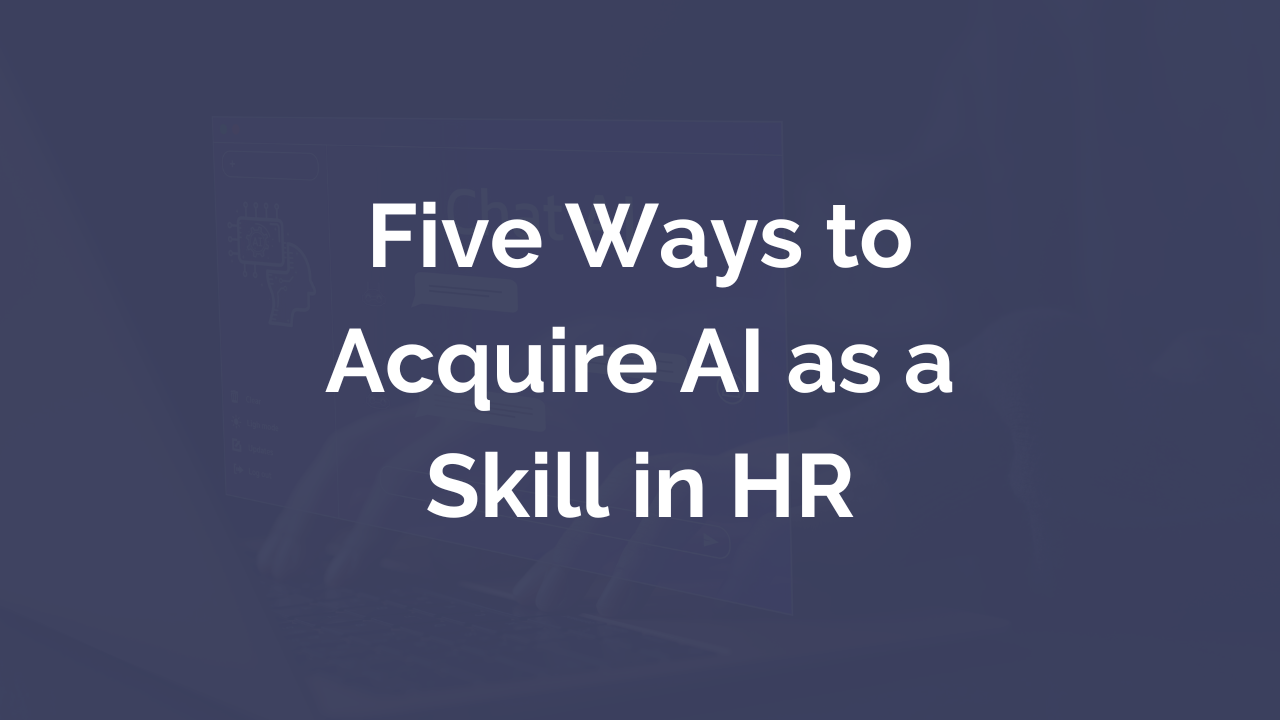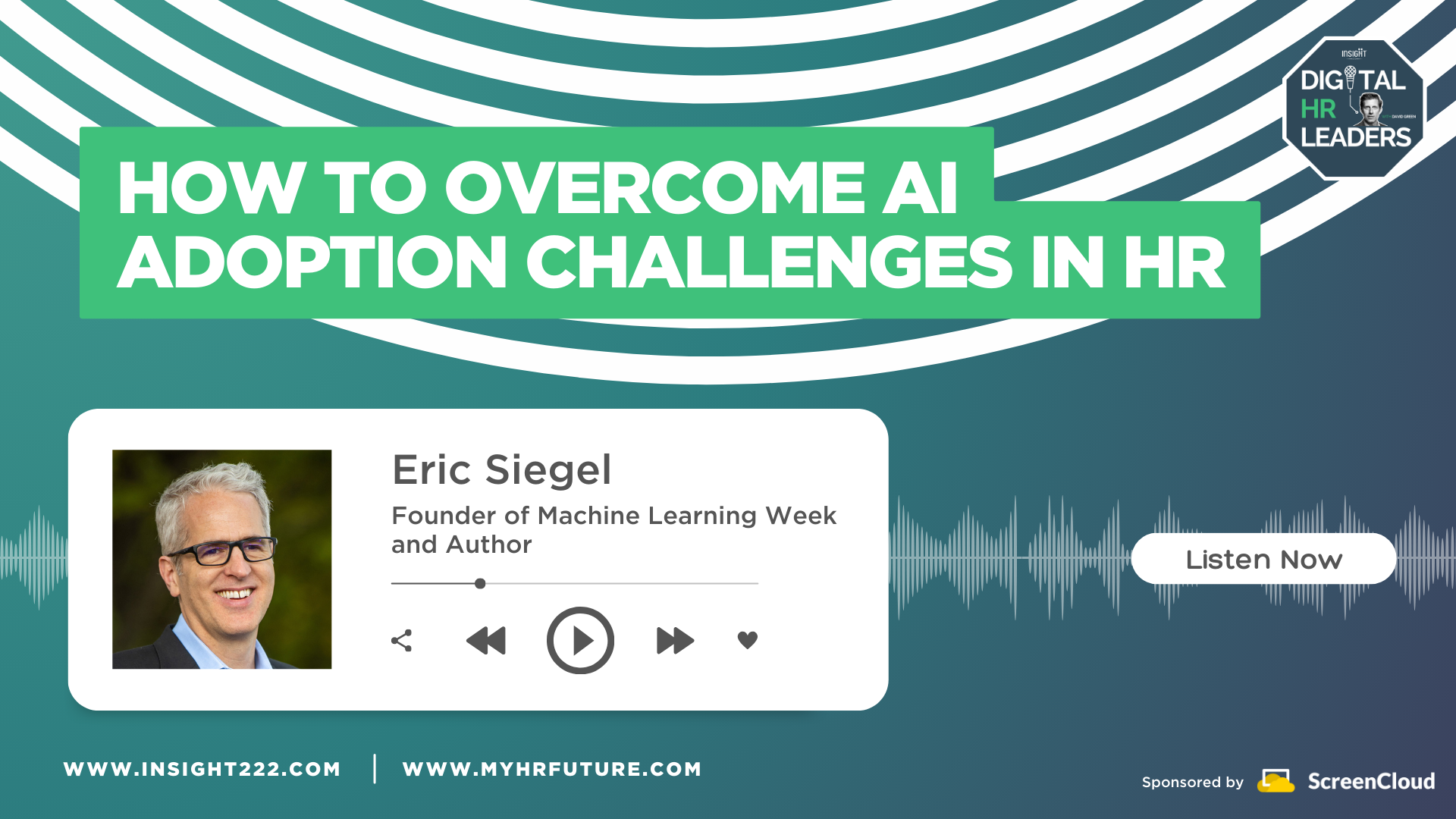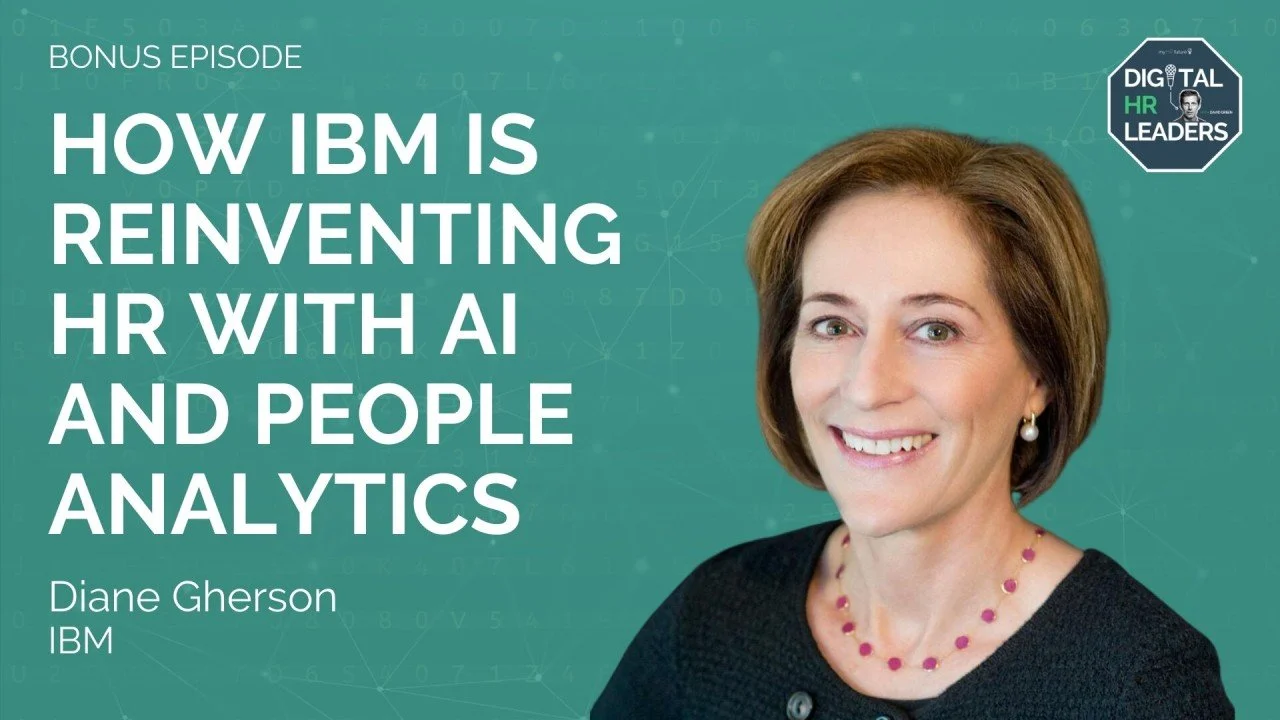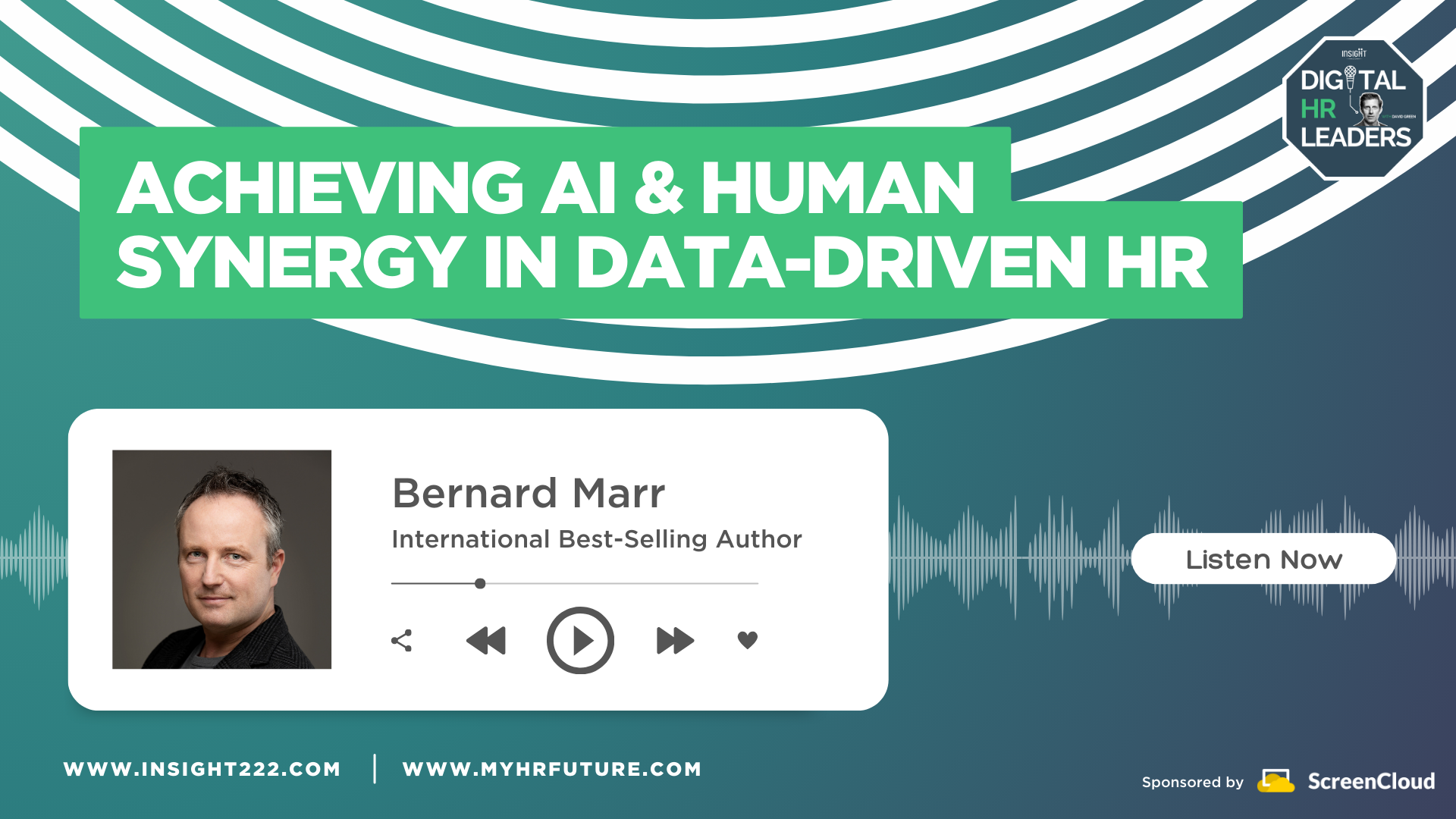Five Ways to Acquire AI as a Skill in HR
"AI will not take your job; someone who knows how to use AI will”. [1] This now widely used quote encapsulates why Artificial Intelligence is not simply a tool that employees utilise but an extension and augmentation of their capabilities. While already 14% of organisations report that they regularly use AI in marketing and sales, HR's utilisation is near the bottom with only 3%. [2]
However, in an environment where there is "explosive growth of generative AI tools" [3], a slow adoption by HR is not an option because, as Eric Siegel explained in a recent conversation with David Green in the Digital HR Leader podcast, AI and "machine learning is the most important general-purpose technology."
To define the direction of HR's future, HR leaders at all levels need to rapidly engage, plan, and execute how they will empower their organisations through embedding AI as a skill for their teams. This is a challenge and an opportunity that places the success of organisations squarely in the hands of HR, because social change is slower than technological change, as Wharton's Ethan Mollick put it. [4]
Navigating the Hyper-Innovation Cycle of HR and AI
Effective HR leadership requires a different approach than traditional upskilling and training because AI technology is evolving at a rate that makes the usual training approaches and cycles obsolete. Even before the rise of GenAI, the average half-life of skills was less than five years.
GenAI tools will require even faster cycles of upskilling and reskilling because they are evolving so quickly. To illustrate, ChatGPT was released in November 2022; within four months, a vastly more powerful GPT-4 was released, and even more powerful models are already being tested in Silicon Valley labs. Bernard Marr calls this a hyper-innovation cycle that we're entering, one that will require HR leaders to understand technology and how AI is advancing. [5]
That change is driving a change in the meaning of 'Digital worker' from describing an employee who utilises technology to make decisions to the new meaning of 'autonomous agents.' [6] These agents take on problems, create solutions, and take actions. Leading companies, like IBM, are already utilising AI as a skill within their HR workforce.
As Diane Gherson [7] explained in a conversation with David Green, IBM's chatbot augmentation for HR service centres freed HR employees to focus on higher-level duties. And companies like Service Now have made it a core of their HR service offering to clients.
How to Acquire AI Skill in HR
To acquire AI skills in HR, five actions are required:
Be clear about what AI does: it improves decision-making. Organisations that make better decisions win. The true power of AI lies in supporting HR teams to be better at making both macro (for example: will this investment in a specific corporate-wide training improve manager performance?) and micro-level decisions (for example: should we interview a candidate?).
Make a plan for how to deploy AI against each major HR area. One of Insight222's People Analytics Program member companies shared that their CEO had tasked each department to devise a plan for leveraging AI.
For Dawn Klinghoffer and Microsoft the starting point "into natural language processing machine learning models (was to analyse a large number of comments in really easy to consume ways) to really understand all of the different sentiment that we were getting." [8]
McKinsey's podcast "Generative AI and the future of HR" goes through a number of opportunities across recruiting, onboarding, skills, and performance reviews. [9]
Decide your AI technology solution. Do you go with a commercial solution, such as StabilityAI, Microsoft 365s, or GitHub's co-pilot? Or do you develop your own with an open-source model [10], such as Stanford's Alpaca or Dolly2.0.
Define the rapid training path for your HR team: BCG recently wrote that everyone will be able to enhance their skills through AI. For HR skills, it means building a set of foundational technical capabilites. These are "no more advanced than high school level algebra" (Eric Siegel). The business skills that already are a part of the Human Resources toolkit and acquire additional importance are communication, influencing, and storytelling.
Bernard Marr points out that 17 "truly human skills make us different from machines." [11] By learning about the capabilities and potential of AI, HR can be (perhaps surprisingly) well-positioned to take a leadership role in how to effectively deploy AI across enterprises.
Because it is not only the technical aspects that will determine successful AI deployment, it is the human aspects, the soft skills that will make a major difference whether your organisation is able to generate the promised returns.
Identify a demonstration project: the people analytics team of a large international institution recently decided to invest in a two-day offsite to work out opportunities for AI-empowered projects. In only two days of brainstorming, the group identified 23 potential projects.
This team showed foresight and leadership in identifying demonstration projects for their area and the enterprise. And identifying the right project is the final step because investment into AI will be prioritised toward those areas that promise a return. That is why the AI skill acquisition needs to be clearly tied to a business purpose and predicted impact for the organisation, not just HR.
As HR, we focus on the people in our organisation. It is up to us to prove that AI and people together can create much more value than we can individually.
[1] Richard Baldwin; World Economic Forum Growth Summit May 2023
[4] https://www.oneusefulthing.org/p/signs-and-portents
[5] Digital HR Leader Podcast, Episode 180; https://www.myhrfuture.com/digital-hr-leaders-podcast/achieving-ai-human-synergy-in-data-driven-hr
[6] https://www.bcg.com/publications/2023/gpt-was-only-the-beginning-autonomous-agents-are-coming
[7] https://www.linkedin.com/pulse/diane-gherson-how-ibm-reinventing-hr-ai-people-analytics-david-green/
[10] https://www.topbots.com/open-source-projects-generative-ai/
[11] Digital HR Leader Podcast, Episode 180; https://www.myhrfuture.com/digital-hr-leaders-podcast/achieving-ai-human-synergy-in-data-driven-hr
ABOUT THE AUTHOR
Dirk Petersen
Dirk Petersen is a renowned expert in HR strategy, organisational change, digital transformation, and how analytics affect HR communities and those they serve. After his MBA at Harvard Business School, Dirk spent many years serving leading organisations at the Corporate Executive Board (CEB). From there he served as a HR Business Partner with the World Bank. Since then he's helped leaders better understand and strategise around how workforce analytics impacts careers, innovation, operational effectiveness, and executive decision-making.
Get Certified With Our AI in HR myHRfuture Course!
Learn the impact of AI, how it has evolved and how it is effecting HR!
‘An Introduction to AI in HR’ is a skill booster that empowers you to gain the foundational knowledge surrounding AI in HR that you need to solve real HR challenges and facilitate HR Processes using AI.
Our unique mix of training courses, videos, interviews, podcasts, case studies and articles help you build hands-on skills while providing real-life context to what you’ve learnt.
By completing this course, you’ll gain a boost in your knowledge of AI in HR, and it will provide you with a solid foundation of what AI is and the impact of AI on business, society and the HR profession. Enroll now and upskill for the future!





